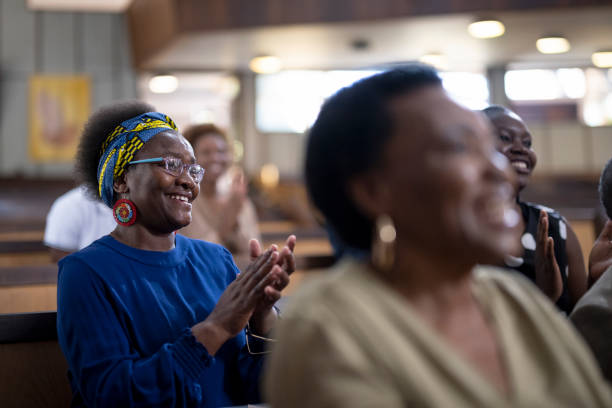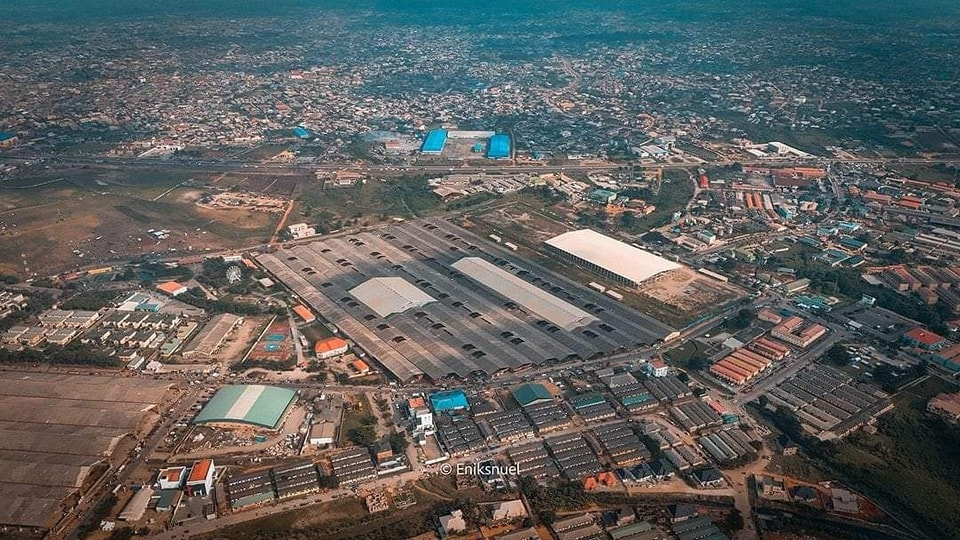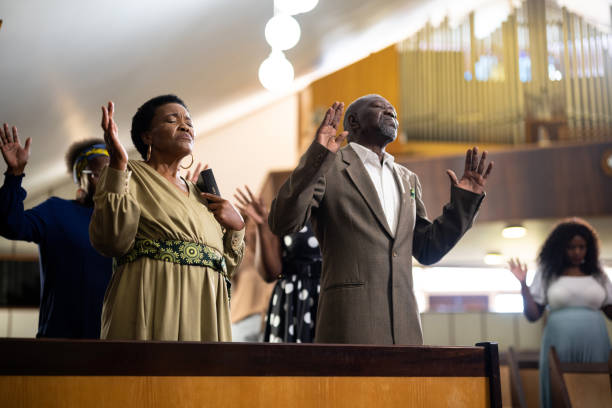From Lagos to London: How African Churches Are Building a Global Faith Empire

The Rise of the Gospel Bridge
In the past thirty years, African Pentecostalism has gone global. What started out local—just a handful of churches in African cities—now reaches far beyond its roots. You see African churches everywhere: busy Lagos, yes, but also tucked into neighborhoods in London, Houston, Toronto. And they aren’t just places to pray anymore. They’re changing how people connect, build communities, even how they see themselves.

Look at the Redeemed Christian Church of God (RCCG). This church began in Nigeria back in 1952, and now? They’ve got tens of thousands of parishes in over 190 countries. In the UK, they’ve opened more than 800 branches. Their North American headquarters is in Dallas, and honestly, the place buzzes with the same energy you’d find in Lagos. Living Faith Church Worldwide—Winners Chapel—brings the same kind of boldness. Bishop David Oyedepo leads the charge, drawing thousands every week to massive churches in places like London and Toronto.
But faith isn’t the only thing these churches deliver. They’re cultural anchors. Pastors slip Yoruba proverbs into their sermons, but you’ll also catch bits of Western ambition and self-help woven in. The choirs incorporate African rhythms into pop and gospel. To people far from home, these churches are not only about worship but also about finding your crowd, building a support system, and holding onto your roots while chasing new dreams.
This whole movement is part of a bigger wave: Africa's spiritual revival. While churches in the West fret over empty seats, African Pentecostal congregations keep on growing, sometimes even faster overseas than back home. Their message of hope, prosperity, and a fresh start strikes a chord, especially with new arrivals and people born abroad. For anyone looking for purpose or a real sense of belonging, these churches are answering the call.
Faith, Finance, and the Flow of Influence
African Pentecostalism isn’t just about faith, money runs through it, too. The so-called “Gospel Bridge” isn’t just a metaphor; it’s a real pipeline moving cash, influence, and hope between continents. Picture this: diaspora churches in Europe or the U.S. send tithes and donations back to their home bases in Africa, building up a global web of give-and-take. In return, the main churches send pastors to visit, offer training, and ship out spiritual materials.

Take RCCG’s Redemption Camp near Lagos. It’s more than a church — it’s basically a small city, and a chunk of its budget comes from overseas branches. Or look at Winners Chapel’s Canaanland in Ota, with its schools, housing estates, and that huge 50,000-seat auditorium — the global church family helps keep it running. Scholars call this a “religious economy,” where belief doesn’t just fill pews, it builds real infrastructure.
But it’s not all about money. These church networks offer serious social glue. In Western cities, African churches become lifelines for new immigrants, they help people find housing, offer business advice, and even connect them to jobs. In London, RCCG’s Jesus House runs career workshops and youth mentoring, drawing in both Nigerian professionals and people from all backgrounds. Over in Houston, Winners Chapel is basically a networking spot for African entrepreneurs and tech folks.
And the influence goes further. Church leaders are showing up on the political stage, meeting with policymakers, hosting big conferences, and acting as unofficial ambassadors for African culture and interests. During Nigerian elections, diaspora branches sometimes kick off prayer campaigns or send in funds, tying faith directly to politics back home.
Of course, not everyone’s sold on this model. Some critics say prosperity preaching — the idea that faith leads to wealth — turns religion into a kind of spiritual capitalism. Others worry these churches just copy old-school hierarchies, mixing power and devotion in ways that get messy. Still, for millions, these churches are more than just places to pray. They’re spaces for connection, support, and, honestly, new beginnings.
The Future of a Global Faith Network
Diaspora Connect
Stay Connected to Home
From Lagos to London, Accra to Atlanta - We Cover It All.
African Pentecostalism isn’t just spreading, it’s morphing, picking up new layers with every generation. To the first pioneers who took their religion from metropolises such as Lagos, Accra, and Nairobi to London, Houston, or Toronto, church was their lifeline. It was their shelter, a way of carving some comfort and stability in cities often cold and inescapably strange. But the kids who grew up in these new countries? They’re taking that foundation and flipping it.
For a lot of younger Africans abroad, church isn’t just about holding onto tradition anymore. It’s a place to shake things up and make new ones. Now, services stream live between continents, branches in Africa and the diaspora worship together, no matter the miles. A Sunday sermon from Redemption Camp in Nigeria beams straight into living rooms in London and Boston. In Toronto, the youth choir takes traditional Yoruba hymns and morphs them into Afrobeats. TikTok, Instagram? They’re like digital pulpits, where young preachers and gospel artists drop quick devotionals that speak to followers all over the world.
All this tech has changed the whole idea of belonging. Faith isn’t stuck in a building or tied to a city. It moves with you. If you’re a young person bouncing from one country to another, the church becomes this constant thread.
There’s more going on than just spiritual connection, too. These global networks are turning into engines for collaboration and opportunity. Diaspora churches are hosting investment seminars, business workshops, tech boot camps, sometimes teaming up with African companies or nonprofits. Winners Chapel, for one, has started youth empowerment projects in the UK and Canada, focusing on money skills and start-up mentoring. They’re tying faith to real-life growth. Some of these programs even send investments back to Africa, using the church as a bridge for business and community building.
African churches aren’t just sitting quietly on the sidelines in their new cities, either. In London, for example, RCCG’s “Festival of Life” fills the ExCel Centre with tens of thousands for an all-night revival, the kind of crowd that turns heads all across Europe. You see politicians, city leaders coming to show that these churches are now part of the fabric of the city. In the US, it is also the case that Pentecostal leaders feature at conferences about immigration and multiculturalism, shaping discourses on belonging and community.
Still, not everything goes as smoothly as one might wish. According to some critics, the emphasis on blessings and prosperity can turn off young people who crave honesty, action, and meaning, rather than just promises of miracles. There are also tugs in different directions, pulling between preserving African leadership and adapting to local culture, as congregations become increasingly diverse. Some diaspora churches are experimenting, giving more power to local leaders, but still keeping close ties to their African roots.

A lot of these churches are also shifting gears, putting more energy into social impact. They’re running food banks, helping refugees, counseling young people. In Toronto, RCCG teams up with shelters to help immigrant families. In London, African church volunteers are leading free mental health workshops, big steps in breaking down stigma both for African communities and the broader faith world.
Then there's the third generation, those children born and raised in the Diaspora. They stand with one leg in each of two worlds, speaking both African and Western languages with equal ease; to them, faith is not just belief. For them, it’s identity, culture, activism. They’re mixing music, art, and social justice right into their worship.
In the end, perhaps this “Gospel Bridge” will be one of Africa’s most powerful exports. What began with a handful of missionaries and prayer groups has grown into a global network that shapes culture, politics, and economics. It's more than a story of migration. It’s about change, faith that moves, adapts, and keeps finding new life. From Lagos to London, Houston to Toronto, the African church isn’t just expanding. It’s carrying the beat, the grit, and the creativity of a continent that never stops reinventing itself.
You may also like...
When Sacred Calendars Align: What a Rare Religious Overlap Can Teach Us

As Lent, Ramadan, and the Lunar calendar converge in February 2026, this short piece explores religious tolerance, commu...
Arsenal Under Fire: Arteta Defiantly Rejects 'Bottlers' Label Amid Title Race Nerves!

Mikel Arteta vehemently denies accusations of Arsenal being "bottlers" following a stumble against Wolves, which handed ...
Sensational Transfer Buzz: Casemiro Linked with Messi or Ronaldo Reunion Post-Man Utd Exit!

The latest transfer window sees major shifts as Manchester United's Casemiro draws interest from Inter Miami and Al Nass...
WBD Deal Heats Up: Netflix Co-CEO Fights for Takeover Amid DOJ Approval Claims!

Netflix co-CEO Ted Sarandos is vigorously advocating for the company's $83 billion acquisition of Warner Bros. Discovery...
KPop Demon Hunters' Stars and Songwriters Celebrate Lunar New Year Success!

Brooks Brothers and Gold House celebrated Lunar New Year with a celebrity-filled dinner in Beverly Hills, featuring rema...
Life-Saving Breakthrough: New US-Backed HIV Injection to Reach Thousands in Zimbabwe

The United States is backing a new twice-yearly HIV prevention injection, lenacapavir (LEN), for 271,000 people in Zimba...
OpenAI's Moral Crossroads: Nearly Tipped Off Police About School Shooter Threat Months Ago
ChatGPT-maker OpenAI disclosed it had identified Jesse Van Rootselaar's account for violent activities last year, prior ...
MTN Nigeria's Market Soars: Stock Hits Record High Post $6.2B Deal

MTN Nigeria's shares surged to a record high following MTN Group's $6.2 billion acquisition of IHS Towers. This strategi...
